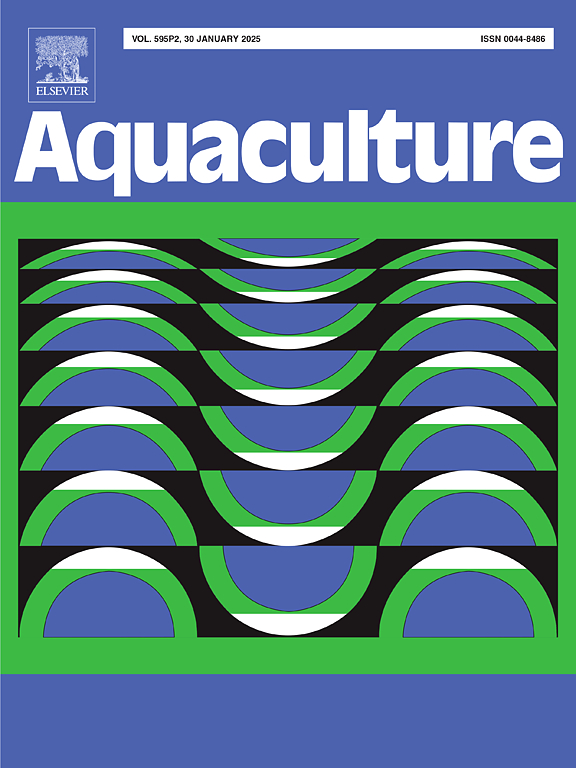低温胁迫下软体动物MAPK级联基因的综合分析及其在栉孔扇贝中的表达模式
IF 3.9
1区 农林科学
Q1 FISHERIES
引用次数: 0
摘要
包括MAPK、MAPK激酶(MAPKK)和MAPKK激酶(MAPKKK)在内的MAPK级联蛋白在进化上是保守的,并具有多种功能,如能量代谢、胚胎发育、细胞分化、凋亡和对外部应激的反应。为了阐明有丝分裂原活化蛋白激酶(MAPK)级联基因在软体动物中的进化关系,本研究选择54个软体动物基因组作为参考,对MAPK级联基因进行系统筛选和比较。结果显示,与双壳目动物相比,腹足目动物和头足目动物的基因数量存在显著差异,其中MAPKKK基因家族的扩增尤为显著。我们以双壳亚的贵族扇贝(Chlamys nobilis)为例,对MAPK级联基因的蛋白结构和保守基序进行了详细的分析,表明MAPKKK基因具有高度的序列变异性。此外,我们探索了MAPK级联基因在不同组织中的表达模式,并分析了它们在慢性和急性低温胁迫下的表达差异,揭示了软体动物应对低温胁迫的不同适应策略。综上所述,本研究不仅阐明了MAPK级联基因在软体动物中的进化关系,还揭示了它们在环境胁迫下的表达模式,为软体动物对环境变化的适应机制提供了新的认识。本文章由计算机程序翻译,如有差异,请以英文原文为准。
Comprehensive analysis of MAPK cascade genes in mollusks and their expression patterns in noble scallop Chlamys nobilis under low temperature stress
MAPK cascade proteins, including MAPK, MAPK kinases (MAPKK), and MAPKK kinases (MAPKKK) are evolutionarily conserved and exhibit diverse functions, such as energy metabolism, embryonic development, cell differentiation, apoptosis, and responses to external stress. To elucidate the evolutionary relationships of the mitogen-activated protein kinase (MAPK) cascade genes in mollusks, this study selected 54 mollusk genomes as references for systematic screening and comparison of MAPK cascade genes. The results revealed significant variation in gene numbers between Gastropoda and Cephalopoda compared to Bivalvia, with a particularly notable expansion in the MAPKKK gene family. Taking the noble scallop (Chlamys nobilis) from the Bivalvia as an example, we conducted a detailed analysis of the protein structure and conserved motifs of the MAPK cascade genes, indicating a high degree of sequence variability in the MAPKKK genes. Furthermore, we explored the expression patterns of the MAPK cascade genes in various tissues and analyzed their expression differences under chronic and acute low-temperature stress, revealing distinct adaptive strategies employed by mollusks in response to low-temperature stress. Overall, this study not only clarifies the evolutionary relationships of the MAPK cascade genes in mollusks but also characterizes their expression patterns under environmental stress, providing new insights into the adaptive mechanisms of mollusks to environmental changes.
求助全文
通过发布文献求助,成功后即可免费获取论文全文。
去求助
来源期刊

Aquaculture
农林科学-海洋与淡水生物学
CiteScore
8.60
自引率
17.80%
发文量
1246
审稿时长
56 days
期刊介绍:
Aquaculture is an international journal for the exploration, improvement and management of all freshwater and marine food resources. It publishes novel and innovative research of world-wide interest on farming of aquatic organisms, which includes finfish, mollusks, crustaceans and aquatic plants for human consumption. Research on ornamentals is not a focus of the Journal. Aquaculture only publishes papers with a clear relevance to improving aquaculture practices or a potential application.
 求助内容:
求助内容: 应助结果提醒方式:
应助结果提醒方式:


